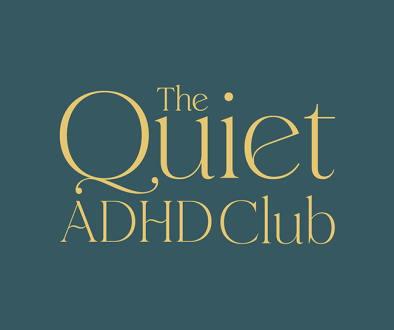Navigating neurodiversity in relationships

The spark and the struggle: navigating neurodiversity in relationships
Love, in all its glorious complexity, can take unexpected turns. Sometimes, the very qualities that draw us to someone can also become a source of frustration. This is especially true when neurodiversity is present in relationships. So can neurodiverse couples be happy?
What are the attractive traits of ND?
The allure of the different.
Let’s start with the spark. Neurodivergent individuals, often affectionately referred to as “neurospicy”, can be captivating. They might possess an irresistible blend of charisma, intelligence, and a unique perspective on the world. Think of the playful energy of someone with ADHD and the fascinating intellect of someone on the autism spectrum. These qualities can be incredibly attractive, especially for those seeking something beyond the ordinary.
Intense connection
This initial attraction can blossom into an intense connection, a limerence that feels all-encompassing and deeply fulfilling. This connection feels genuine and secure, built on a foundation of mutual respect and appreciation.
Unique perspective
Partners may find themselves drawn to the unique perspective and strengths their neurodivergent counterparts bring. Finding another who embraces their individuality can be incredibly validating for someone who feels misunderstood by the world.
Difficulties in neurodivergent relationships
While the initial spark in a neurodiverse relationship can be intense, the journey beyond the honeymoon phase presents its own set of challenges. Neurodivergent individuals often face difficulties with executive functioning, emotional regulation, and communication. This can manifest in various ways, leading to misunderstandings, meltdowns, and feelings of walking on eggshells.
Examples are feelings of frustration when trying to plan a trip with someone who struggles with time management. Or the heartbreak of feeling emotionally disconnected from a partner who has difficulty expressing affection verbally. Initially, these issues can seem manageable. But over time, they can snowball into bigger conflicts. This leaves both partners feeling hurt, misunderstood, and emotionally drained.
The metaphor of different “scripts” is helpful here. Neurodivergent and neurotypical individuals often operate from different communication styles and social expectations.
This can lead to:
- Misinterpretations
- Missed cues
- Emotional escalations
Imagine trying to have a conversation with someone who speaks a different language. The potential for misunderstandings is vast. A neurodivergent individual might interpret a partner’s silence as disapproval, while the neurotypical partner might simply be lost in thought. Similarly, a playful remark from someone with ADHD might be misconstrued as sarcasm by their neurotypical partner, leading to unnecessary conflict.
The ND emotional landscape
Adding another layer of complexity is the often-challenging realm of emotional regulation in neurodivergent individuals. Sensory overload, social anxiety, and difficulty processing emotions can lead to meltdowns, shutdowns, or emotional dysregulation. It can be difficult for the NT partner to know what to do if their partner is experiencing a meltdown triggered by overwhelming stimuli.
Navigating the delicate dance of intimacy if your partner struggles to express their needs verbally also presents challenges.
These situations can be challenging for both partners. They require immense patience, empathy, and a willingness to learn each other’s unique emotional landscape.
What are some strategies for emotional regulation in a relationship?
The key to any successful relationship lies in understanding, patience, and a willingness to learn. This is even more important in relationships where neurodiversity is present. Therapy can be a powerful tool in this journey, equipping couples with strategies to navigate communication, manage emotional triggers, and build a deeper understanding of each other’s unique needs.
Relationship Coaching for neurodiverse couples
Couples Coaching and can be a powerful tool in this journey, equipping couples with strategies to:
- Improve communication: This involves learning each other’s communication styles, actively listening, and expressing needs clearly and directly.
- Manage emotional triggers: Identifying individual triggers and developing coping mechanisms can help both partners navigate challenging situations more effectively.
- Build emotional intimacy: Exploring alternative ways of expressing affection and fostering deeper emotional connection can strengthen the bond between partners.
- Embrace neurodiversity: Viewing neurodiversity as a strength rather than a deficit can foster acceptance and appreciation for each other’s unique qualities.
- Understand the impact of family history: Understanding family history and the impact of past experiences on the relationship dynamic can help provide context.
The pop psychology problem
When you’re struggling to understand the dynamics in your relationship, it’s natural to feel a bit lost and seek answers online. Whilst there is a wealth of great information and resources online, there is also misleading information. I’ve seen situations where people have diagnosed themselves or other people in their lives, based on content from TikTok and Instagram. While it’s valuable for people to share their personal experiences, this can lead to a wider misunderstanding, particularly of neurodivergent traits.
For example, an autistic parent may have emotionally disconnected traits that may be mistaken for Narcissistic Personality Disorder. The key difference is intentionality.
While narcissistic behaviour is often fueled by manipulation and self-serving agendas, neurodivergent traits stem from inherent differences in processing information and interacting with the world. Understanding this distinction is essential for fostering healthy and fulfilling relationships.
When we misunderstand neurodivergent traits that aren’t intentional, this can lead to further conflict and disconnection.
To begin to understand the dynamics in your relationship and the impact of neurodivergence on your communication, it’s important to seek expert help. I have seen these dynamics play out countless times and can give you concrete strategies to foster understanding and connection. Paired with a psychodynamic approach, I will give you a comprehensive toolkit to enlighten and encourage you both.
Focus on the positives
Humour can be a powerful tool in therapy, helping couples see the lighter side of challenging situations and fostering a sense of connection.
During therapy, issues from your daily life will come up. For example, perhaps you or your partner have a “trail of mess” in your wake when you come home, like a pathway of breadcrumbs. Try to relax and see the funny side of it. And maybe have a designated dumping corner.
Remember, the initial spark, that intense connection, isn’t a fluke. It’s a testament to the underlying potential for a fulfilling and enriching relationship. By embracing the diversity within yourselves and each other, and by seeking support and learning new tools, you can navigate the challenges and build a lasting, loving connection.



